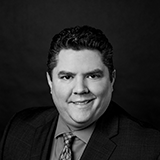Note: This information is current as of 4:00 p.m. on March 17, 2020. This is an evolving situation and circumstances may change quickly.
Banking Issues
Federal and state banking agencies are encouraging banks to take steps necessary and prudent to ensure the financial stability, health and safety of bank employees as well as bank customers and their communities. The regulatory agencies have noted that banks should work with their customers in affected communities in a safe and sound manner to help mitigate loss, and that such prudent efforts should not trigger examiner criticism of the bank. Examples of efforts that may be prudent for the bank to consider include:
- Waiving fees (ATM, overdraft, late payment of credit cards or loans and early withdrawal penalties on time deposits);
- Increasing daily ATM withdrawal limits;
- Increasing credit limits for worthy borrowers;
- Offering payment accommodations allowing actions like deferral of or skipping payments temporarily;
- Modifying or restructuring debt obligations (evaluation should be done to consider whether they represent troubled debt restructurings); and
- Working with customers who are temporarily unable to work and earn a living.
Before taking action, banks should evaluate any effort on a facts-and-circumstances basis, to ensure the bank is still operating in a safe and sound manner. Banks are encouraged to work closely with their state and federal regulators and professional advisors in making the determination of mitigating efforts to be taken.
The state and federal bank regulatory agencies are also aware that, outside of customer relations, there may also be impacts to the ability of banks to operate as usual. Guidance by the CDC and state and local governments are triggering business closures for the health and safety of employees and customers. The Minnesota Department of Commerce (“MDC”) along with federal regulators, have indicated that banks can take steps necessary to protect the health and safety of customers and employees, including for example:
- Closing bank lobbies and providing services through the drive-through;
- Modifying bank hours (though note that the MDC has indicated that to be considered “open” the branch location must open at a reasonable time and close no earlier than 2PM); and
- Potential office closure if necessary (however, per the MDC, closures exceeding 48 consecutive hours, excluding legal holidays, must receive approval).
This is an unprecedented time, and the state and federal bank regulatory agencies have indicated that banks can contact their regulators to discuss options and flexibility as necessary. The agencies understand and acknowledge that there will be potential service disruptions, but are encouraging banks to do what they can to minimize those disruptions. There is constantly new guidance and information being posted by the state and federal bank regulators, see their websites for guidance or reach out to our office for copies of such information.
Employment Issues
As COVID-19 becomes more widespread throughout the United States, banks must consider and implement policies to combat COVID-19 transmission in the workplace and protect their employees. If banks do not currently have policies in place, below are some of the primary issues to consider.
Wage and Hour
The Fair Labor Standards Act (“FLSA”) governs when, and under what circumstances, an employee must be compensated for time not spent working in the office. Under the FLSA, non-exempt employees are not required to be paid for time they are not working. Therefore, if a non-exempt employee is home because they have traveled to an affected area, have been exposed to COVID-19, are exhibiting symptoms, or if there has been a temporary bank closure, time at home is not required to be compensable, regardless of whose decision it was for the employee to stay home. However, if the non-exempt employee performs tasks while at home such as working remotely, that time is treated as hours worked and is compensable.
For exempt employees, if a bank temporarily closes due to COVID-19, they are entitled to their full weekly salary, unless they have not worked for the entire workweek. If an exempt employee misses work due to their own illness from COVID-19, the bank may deduct from their salary, depending upon the bank’s paid sick leave policy, provided it is done in compliance with the FLSA. If an employee misses work because they are infected by COVID-19 or because they are caring for an immediate family member who suffers from COVID-19, that absence may be permitted under the Family and Medical Leave Act (“FMLA”) or other similar state leave laws.
Paid Leave and Unemployment Benefits
Current legislation is being reviewed at the federal and state levels for paid leave and other options for employees in connection with COVID-19. Otherwise, generally speaking, for school and daycare closures due to COVID-19, employees cannot take FMLA leave to cover their time away from work, unless they are infected or have a family member who is infected for whom they are caring. Employees also cannot take leave under the Minnesota Parental Leave Act for school or daycare closures due to COVID-19. However, employees of covered banks located in Minneapolis or St. Paul can take paid sick leave under the Minneapolis and St. Paul Sick and Safe Time Ordinances for: (a) closure of a bank by a public official due to public health emergency or an infectious or hazardous situation; (b) accommodation of need to care for a child whose school or daycare has been closed by a public official due to public health or emergency situation; or (c) accommodation for need to care for a family member whose school or place of care has been closed due to unexpected closures.
Furthermore, Minnesota Unemployment Insurance provides unemployment benefits available for temporary, partial wage replacement for workers who have become unemployed or whose hours have been greatly reduced in connection with COVID-19. On March 16, 2020, Minnesota Governor Tim Walz issued an executive order to ensure workers affected by the COVID-19 pandemic have full access to unemployment benefits. The executive order makes applicants eligible for unemployment benefits if:
- A healthcare professional or health authority recommended or ordered them to avoid contact with others.
- They have been ordered not to come to their workplace due to an outbreak of a communicable disease.
- They have received notification from a school district, daycare, or other childcare provider that either classes are canceled or the applicant’s ordinary childcare is unavailable, provided that the applicant made reasonable efforts to obtain other childcare and requested time off or other accommodation from the employer and no reasonable accommodation was available.
Governor Walz’s executive order waives the nonpayable or “waiting” week to ensure applicants have access to unemployment benefits as quickly as possible. While all applicants for unemployment benefits must actively seek suitable employment, Governor Walz’s executive order stipulates that workers may look for suitable work that does not pose a risk to their health or the health of others. If workers have only been laid off temporarily, workers can meet work search requirements by staying in contact with their current employer. Finally, Governor Walz’s executive order waives the ordinary five-week benefit limitation for business owners who have become unemployed as a result of COVID-19.
Travel Advisories
To date, the Centers for Disease Control and Prevention and State Department have issued several travel warnings. The travel warnings will change depending on the spread of COVID-19. While banks cannot prevent employees from traveling to high-risk locations for personal reasons, banks may deny time off for travel to a high-risk location due to business cost of a resulting quarantine, or other legitimate business reasons, provided it is not for a discriminatory purpose. The Americans with Disabilities Act (“ADA”) controls when and what sort of questions a bank may ask about an employee’s health. Banks may request that employees inform them if they are traveling to a high-risk location for personal reasons to assess exposure risks. Banks should also warn employees that such travel may result in quarantine or self-monitoring upon return (including working from home, if applicable). Lastly, banks may ask employees if they are experiencing COVID-19 symptoms such as fever, tiredness, cough, and shortness of breath, through completion of a self-declaration health form. For confidentiality purposes, banks should store this information in a separate, confidential health folder and limit access to those with a business need to know.
Sick Employees and Quarantine
Banks should let all employees know that the company is monitoring the situation and taking appropriate precautions, and that they should discuss any concerns with Human Resources or a designated senior executive officer. Banks should also direct employees to immediately notify Human Resources or the bank’s designated senior executive officer if they have been exposed to or diagnosed with COVID-19, so the bank can provide them with appropriate support, such as requiring them to temporarily work remotely if possible, to avoid coworker exposure. Assure employees of the confidentiality of information they provide, and share that information only as necessary or as required by law. Employees who are infected with COVID-19 should not return to the workplace until they are no longer medically infected. If exposure has already occurred, the bank should identify other employees who may have been exposed and inform them that they may have been exposed (while maintaining confidentiality of others consistent with applicable law) and assist those employees with possible accommodations, leave requests, benefits coordination, and return-to-work documentation when and as warranted. Banks should consider a deep clean of affected workspaces. Furthermore, banks in a shared office building or area should inform building management, so they can take necessary precautions.
Banks may find it necessary to implement a mandatory quarantine for employees, depending on the health and legal risks. If a bank has a reasonable, objective belief that an employee may have been exposed to COVID-19 and is a danger to the workplace, the bank can require the employee to stay at home for a 14-day quarantine period or work from home if they are able to do so. However, banks should also consider the facts and circumstances of an employee’s known connection to an infected individual or recent travel, including the duration of the employee’s trip, the areas the employee visited, the amount of time the employee has been back and the employee’s symptoms. Furthermore, ADA laws must be assessed to clarify if any mandatory quarantine is appropriate. Therefore, please contact your legal advisors to discuss prior to implementation.
Generally speaking, employment related matters associated with COVID-19 are rapidly evolving and we recommend working with the bank’s Human Resources team and professional advisors to determine the appropriate policies and procedures for your bank.
Monthly Board and Annual Shareholder Meetings
Many banks have regularly scheduled board meetings and their annual shareholder meetings regularly occur in the spring. In light of recent guidance suggesting the elimination of in person gatherings, many banks are reviewing whether they can hold their board and shareholder meetings remotely or by electronic methods.
Federal and state banking laws permit bank boards to meet electronically if the bank’s bylaws permit meeting remotely. This includes video conferencing, telephonic meetings or other forms of remote board meetings. Boards will still need to follow proper procedures to notice and inform directors of the method in which the meeting will be held. Additionally, Boards should be thoughtful on establishing rules of conduct and methods for recognizing directors to help simulate conversation when everyone is not located in the same spot.
Additionally, bank holding companies who regularly hold their annual shareholder meetings in the spring are permitted under Minnesota corporate law to conduct shareholder meetings via remote communication, as long as the holding company’s bylaws specifically authorize the same. Further, for those privately held bank holding companies who have already noticed their shareholder meeting, and originally identified the meeting as an in-person meeting, Minnesota law does permit the holding company to send a follow-up notice identifying the change from a physical meeting to a remote meeting.
In addition to legal considerations, there are a number of practical considerations that the holding company should consider. These include:
- Whether a virtual meeting will result in broader meeting attendance;
- Whether the holding company has the technical ability to conduct such a meeting;
- Whether a holding company can verify the participants of a remote meeting and perform the necessary record keeping; and
- Whether a remote meeting will provide the shareholders a fair opportunity to ask questions, raise issues and otherwise participate in the meeting.
Any bank or bank holding company considering changing their board or shareholder meetings from in-person meetings to meetings conducted remotely should review their corporate documents carefully and reach out to professional advisors for additional guidance.
Winthrop & Weinstine, P.A. will continue to monitor relevant issues in light of this pandemic. Should you wish to discuss any of the topics addressed above or other questions your organization may have as a result of the current environment, please feel free to contact any of the attorneys in Winthrop & Weinstine, P.A.’s community banking practice.



